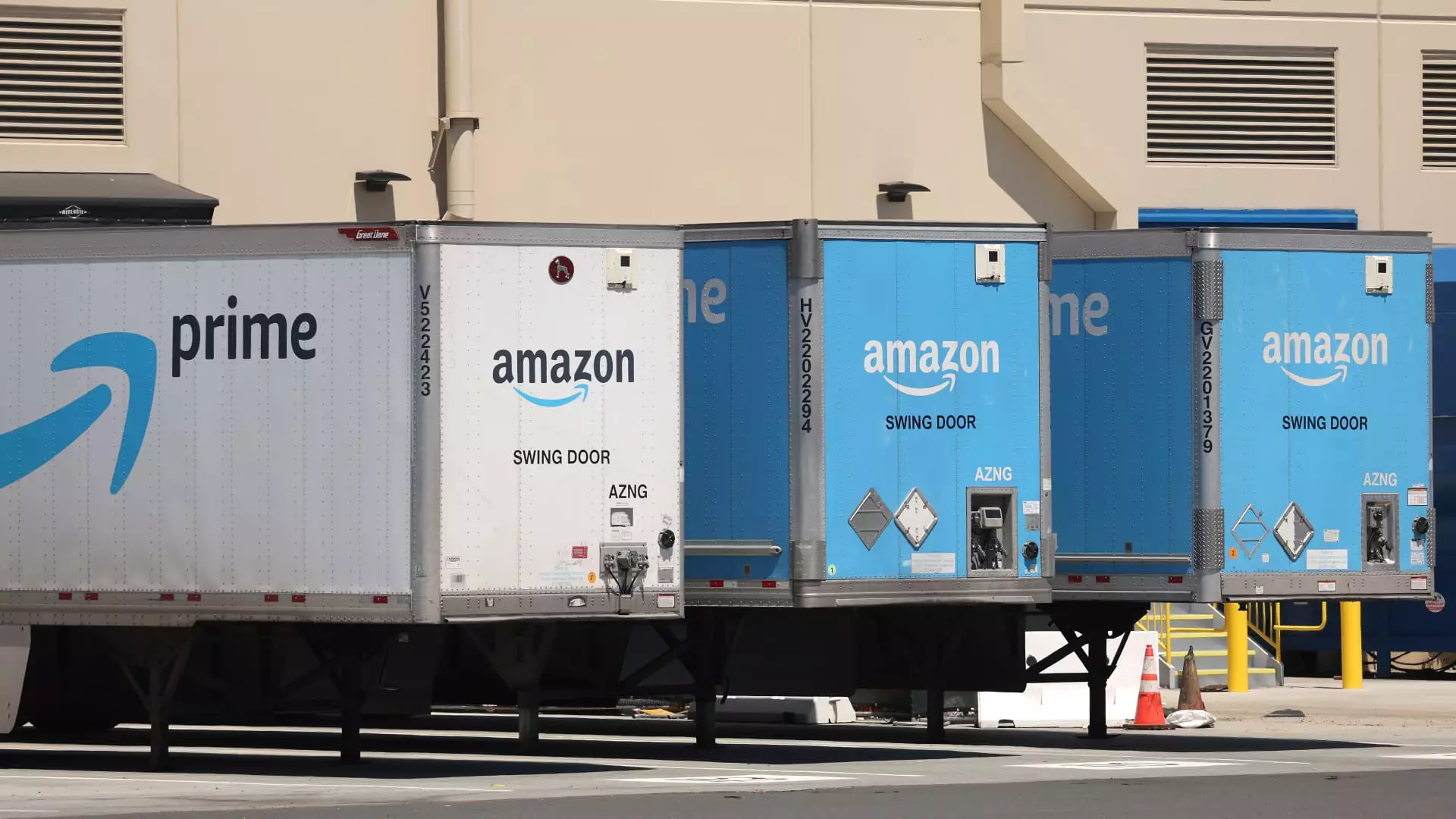In a troubling development that reveals the darker nuances of e-commerce logistics, the Department of Justice (DOJ) has unveiled a staggering heist orchestrated by an Armenian organized crime ring that allegedly siphoned over $83 million worth of goods from Amazon. The audacity of these criminals, who masqueraded as legitimate truck drivers, points to a systemic failure in safeguarding the integrity of supply chains that serve as the backbone of modern retail. What emerges from this sordid chapter is not just the scale of theft but a reflection on the vulnerabilities of companies grappling with increasing organized crime and consumer fraud.
Cargo theft is not a new phenomenon; indeed, it has morphed into a burgeoning industry within itself. For years, retailers, particularly giants like Amazon, have fought a war on multiple fronts: ensuring the security of their assets while maintaining swift delivery schedules. However, the irony lies in the fact that while these tech giants amass unprecedented wealth, the logistics networks they churn rely on increasingly precarious frameworks susceptible to criminal manipulation. The DOJ’s recent charges underscore the depth of this issue, with claims that the defendants’ operations extended across California, tapping into the very infrastructure that should be protecting these shipments.
A Dangerous Game of Deception
From smart TVs to kitchen appliances, the cargo pilfered from Amazon symbolizes more than just stolen merchandise—it represents the hard work and equity of people’s lives disrupted by criminal enterprises. The alleged use of fraudulent transport carriers such as AK Transportation and Markos Transportation not only illustrates a high level of orchestrated deceit but also highlights the complexity of oversight in such large-scale operations. The criminals picked them apart, exploiting the loopholes to divert goods intended for consumers. Their ability to act with impunity for as long as they did is a harsh reminder that the tactics of organized crime can outpace the measures in place to deter them.
Moreover, the DOJ’s accusation that the events date back to at least 2021 begs the question of how much longer such schemes had been languishing under the radar. The unsettling reality is that as Amazon and other retailers like it expand their market share, they inadvertently amplify vulnerabilities that criminals eagerly exploit. Each reported theft, amounting to an estimated annual loss of around $1 billion, should serve as a clarion call for tighter regulations and more robust oversight in a sector that is rapidly evolving.
The Human Toll and Systemic Implications
This scandal extends beyond mere dollars and cents; it unveils a grim truth about systemic failures in our law enforcement, regulatory, and corporate structures. The DOJ’s findings included shocking revelations about the defendants’ involvement in heinous crimes: attempted murder, kidnapping, and illegal firearm possession. These are not isolated incidents; rather, they indicate a broader social malaise where crime intertwines with business operations, often creating treacherous environments for legitimate enterprises and individuals seeking safe avenues of commerce.
Moreover, the so-called “self-styled carriers” diverting cargo raises pressing questions about accountability. As third-party sellers often operate in a grey area, it becomes difficult to discern whether businesses are complicit in these activities or merely collateral damage caught in an expanding web of deception. Reports suggest many small vendors might find themselves unknowingly entangled in platforms selling stolen goods, thus jeopardizing their livelihoods. While the quest for profitability in e-commerce is fierce, the ethical implications should not take a backseat to corporate expediency.
A Call to Action: The Regulatory Void
Clearly, the existing frameworks for oversight and enforcement surrounding e-commerce need a serious overhaul. As consumers rely more heavily on convenience and speed, it is vital for platforms like Amazon to institute robust verification procedures to prevent fraudulent actors from slipping through the cracks. This crisis serves as an opportunity for lawmakers and corporate leaders alike to come together and draft legislation that addresses the escalating nature of cargo theft, holding not only criminal actors accountable but also business practices that enable such schemes to thrive.
In the face of adversity, Amazon’s alliance with the DOJ in this investigation marks a crucial step forward. However, it must be just one of many proactive measures undertaken to restore integrity in online marketplaces. As the shadow of crime looms larger, the imperative for change grows stronger. The stakes are unprecedented, and the necessity for vigilance is paramount in a world where the line between legitimate business and organized crime continues to blur.


Leave a Reply